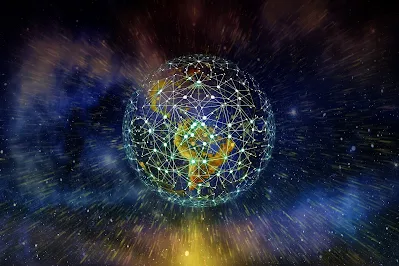Introduction
In the 21st century, our world is more interconnected than ever before. The forces of globalization have woven a complex web that binds nations, economies, and cultures together. While globalization has undoubtedly brought about unprecedented opportunities, it has also presented significant challenges. In this blog post, we'll explore the various facets of globalization, examining its impact on economies, societies, and individuals.
The Economic Landscape
One of the primary drivers of globalization is the interconnectedness of economies. The flow of goods, services, and capital across borders has accelerated, creating a truly global marketplace. Multinational corporations operate on a scale unimaginable just a few decades ago, transcending national boundaries and reshaping industries.
While globalization has led to economic growth in many parts of the world, it has also widened the gap between the rich and the poor. Developing countries often find themselves in a precarious position, caught between the promise of economic development and the challenges of unequal distribution of resources. The recent global economic downturns, such as the 2008 financial crisis and the COVID-19 pandemic, have underscored the vulnerabilities of a globally interconnected economy.
Cultural Exchange and Identity
Globalization isn't confined to economic spheres; it permeates through culture, language, and identity. The exchange of ideas, values, and traditions has become more fluid, giving rise to a globalized cultural landscape. While this intermingling can foster understanding and appreciation, it also brings concerns about cultural homogenization and the erosion of local traditions.
In this interconnected world, individuals find themselves navigating multiple cultural identities. The rise of social media and digital communication has further accelerated this process, connecting people across continents but also raising questions about the impact on cultural diversity.
Environmental Implications
The environmental consequences of globalization are a growing concern. The increased movement of goods and people has led to a surge in energy consumption and carbon emissions. Supply chains that stretch across the globe contribute to deforestation, pollution, and over-exploitation of natural resources. Addressing environmental challenges requires a collaborative, global effort that transcends national borders.
Global Governance and Challenges
The need for global cooperation has never been more apparent, yet the mechanisms for effective governance are often elusive. International institutions, such as the United Nations, World Trade Organization, and International Monetary Fund, play crucial roles in managing global affairs. However, their effectiveness is often hampered by geopolitical tensions and the interests of powerful nations.
Global challenges, such as climate change, pandemics, and migration, require coordinated responses. The effectiveness of these responses depends on the ability of nations to overcome differences and work towards shared goals.
The Future of Globalization
As we stand at the crossroads of the 21st century, the future of globalisation remains uncertain. The ongoing technological revolution, geopolitical shifts, and the evolving nature of global challenges will shape the trajectory of globalisation in the years to come.
Adapting to this new reality requires a balance between harnessing the benefits of inter-connectedness and addressing the inequalities and vulnerabilities it exposes. Globalization, at its best, can be a force for positive change, fostering collaboration, innovation, and mutual understanding. However, to ensure a sustainable and equitable future, it is essential to navigate the waves of globalization with a keen awareness of its complexities and challenges.








1 Comments
Superb post
ReplyDelete